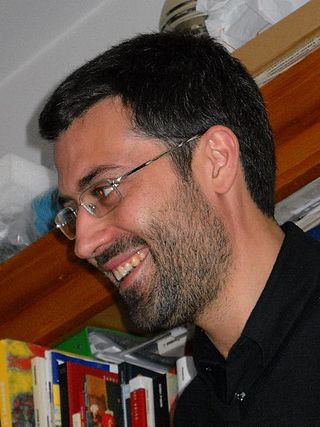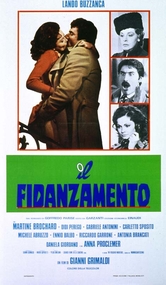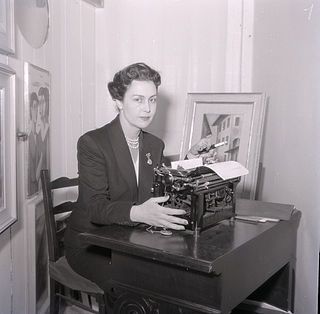Related Research Articles

General Gabriele D'Annunzio, Prince of Montenevoso, sometimes written d'Annunzio as he used to sign himself, was an Italian poet, playwright, orator, journalist, aristocrat, and Royal Italian Army officer during World War I. He occupied a prominent place in Italian literature from 1889 to 1910 and in its political life from 1914 to 1924. He was often referred to by the epithets il Vate and il Profeta.

Pier Paolo Pasolini was an Italian poet, film director, writer, actor and playwright. He is considered one of the defining public intellectuals in 20th-century Italian history, influential both as an artist and a political figure. He is known for directing the films from Trilogy of Life and Salò, or the 120 Days of Sodom.

Vitaliano Brancati was an Italian novelist, dramatist, poet and screenwriter.

Alberto Pincherle, known by his pseudonym Alberto Moravia, was an Italian novelist and journalist. His novels explored matters of modern sexuality, social alienation and existentialism. Moravia is best known for his debut novel Gli indifferenti and for the anti-fascist novel Il conformista, the basis for the film The Conformist (1970) directed by Bernardo Bertolucci. Other novels of his adapted for the cinema are Agostino, filmed with the same title by Mauro Bolognini in 1962; Il disprezzo, filmed by Jean-Luc Godard as Le Mépris ; La noia (Boredom), filmed with that title by Damiano Damiani in 1963 and released in the US as The Empty Canvas in 1964 and La ciociara, filmed by Vittorio De Sica as Two Women (1960). Cédric Kahn's L'Ennui (1998) is another version of La noia.

Bradamante is a fictional knight heroine in two epic poems of the Renaissance: Orlando Innamorato by Matteo Maria Boiardo and Orlando Furioso by Ludovico Ariosto. Since the poems exerted a wide influence on later culture, she became a recurring character in Western art.

Italian Renewal was a centrist and liberal political party in Italy.

The Strega Prize is the most important Italian literary award. It has been awarded annually since 1947 for the best work of prose fiction written in the Italian language by an author of any nationality and first published between 1 March of the previous year and 28/29 February.

Orchidea De Santis is an Italian television and film actress.

Andrea Bajani is an Italian novelist, poet, and journalist. After his debut with Cordiali saluti, it was Se consideri le colpe which brought him a great deal of attention. Antonio Tabucchi wrote about his debut novel, "I read this book with an excitement that Italian literature hasn't made me feel in ages." The book won the Super Mondello Prize, the Brancati Prize, the Recanati Prize and the Lo Straniero Prize.
Caldo may refer to:

The Sensual Man is a 1974 Italian comedy film written and directed by Marco Vicario.

Paolo Volponi was an Italian writer, poet, and politician.

L'esorciccio is a 1975 Italian Horror comedy film written, directed, produced and starring Ciccio Ingrassia.

Il fidanzamento is a 1975 Italian romantic comedy-drama film directed by Giovanni Grimaldi. It is based on the novel with the same name written by Goffredo Parise.

Paolo il freddo is a 1974 Italian comedy film written and directed by Ciccio Ingrassia and starring Franco Franchi. A parody of Marco Vicario's Paolo il caldo, it is Ingrassia's second and last film as a director.

Mastro-don Gesualdo is an Italian novel written by Giovanni Verga, published in 1889. The first English edition, Master Don Gesualdo (1893), was translated by Mary A. Craig and was published in London by J. P. Osgood, McIlvaine publishers. Giovanni Cecchetti, in the introduction to his translation of the 1979 edition, writes that it "is generally regarded as a masterpiece".

A Private Matter is an Italian novel by Beppe Fenoglio, first published posthumously in April 1963, two months after the author's death. The book deals with themes common to Fenoglio's work: the lives of partisans and the final period of the Second World War in Italy. Italo Calvino called A Private Matter, "the crowning of a whole generation's efforts to portray the resistance," and, "the novel that our generation wished we created."

Livia De Stefani was an Italian writer.

The Premio Brancati Zafferana, more concisely known as the Premio Brancati, is a literary prize named in memory of the Italian writer Vitaliano Brancati.
References
- 1 2 Reich, Jacqueline (2004-03-19). Beyond the Latin Lover: Marcello Mastroianni, Masculinity, and Italian Cinema. Indiana University Press. p. 56. ISBN 978-0-253-21644-1.
- ↑ Marrone, Gaetana; Puppa, Paolo (2006-12-26). Encyclopedia of Italian Literary Studies. Routledge. pp. 309–310. ISBN 978-1-135-45529-3.
- ↑ Welsh, James M.; Phillips, Gene D.; Hill, Rodney F. (2010-08-27). The Francis Ford Coppola Encyclopedia. Scarecrow Press. p. 103. ISBN 978-0-8108-7651-4.